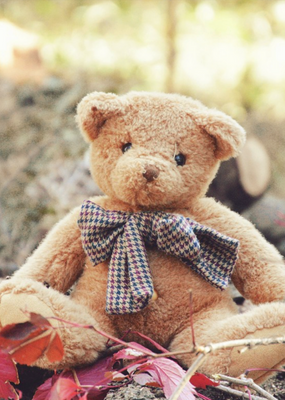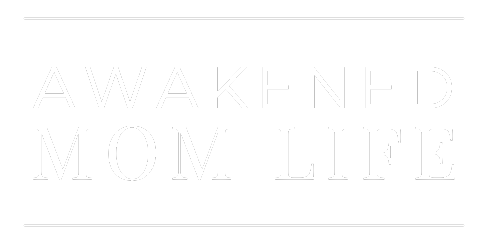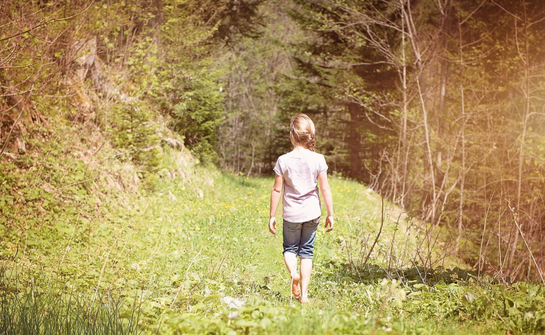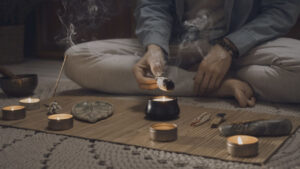Do you feel like you aren’t “normal”? For survivors of childhood trauma, it’s common to feel like you aren’t like others. So if you share this familiar feeling, why is it so isolating?
Did you know that almost two-thirds of children report at least one adverse childhood experience by age 16? Even though this problem is everywhere, we still aren’t seeing the proper exposure to help those impacted.
As children grow, at some point, they begin to explore what it means to be an individual. A perfect example is happening in front of me as I type. My daughter is watching cartoons, dancing, and making funny faces. By giving her the freedom to be herself, I’m giving her a safe space to explore her individuality.
If you grew up with child neglect or childhood abuse, you didn’t have the safe space to learn who you were. Instead, you learned to hide behind a mask. This mask was a personality you molded to help you feel safe in an environment meant to keep you quiet and submissive.
As you become an adult, that mask gets heavier and more painful.
Underneath it, your authentic self is dying to come out and be seen. But you learned that that part of yourself was terrible and needed to stay hidden. When in all actuality, there is nothing wrong with you at all.
Even reading this, you are likely struggling to accept that nothing is wrong with you. That’s because, to your core, you were brainwashed to believe that you are flawed. You had to shove down your true nature to stay safe as a child.
As adult survivors of childhood trauma, one of our biggest lessons is this:
The behaviors that kept you safe as a child will cause immense pain as an adult.
We all “make” a set of rules we live by. These rules are subconscious but incredibly powerful and drive every single decision you make.
As a child in an abusive and neglected household, I created these “rules” to stay safe.
- Never challenge or question authority
- Stay quiet. Be seen, not heard.
- Be nice
- I am an extension of my caregivers, not an individual
- Asking for things is selfish
- I need to be liked at all costs to feel loved
- Love is conditional, so I have to work for it
- Everyone else knows better than me
Perhaps you can instantly see how these behaviors are incredibly unhealthy, or maybe not. Let me show you how they negatively impacted my life as an adult.
1. Never challenge or question authority
I was terrified of bosses in the workplace. Once in college, a boss asked me to forge data for a report we were submitting; I did it, then cried the whole way home.
2. Stay quiet. Be seen, not heard.
I was sexually assaulted more than once in my life. The first time was in 8th grade. I was only 13 years old. I went home and cried into a pillow. I felt dirty and disgusting and didn’t tell anyone except my friends. Those friends laughed. I felt alone.
3. Be nice.
I have put my life in danger more than I can count because I didn’t want to offend a man. I was afraid to remove myself from situations where I felt vulnerable and scared. In college, I was sexually assaulted by a classmate who happened to be in a wheelchair. I was terrified to hurt his feelings even when he kept putting his hands on me.
4. Asking for things is selfish
I was repeatedly told how selfish I was whenever I expressed my emotions. Especially when it came to not having my needs met. After college, I wanted to be a cheerleader for a pro football team, and I planned for the tryouts for months. Weeks ahead of time, I asked my caregiver to help me get ready the morning of. Instead, she woke up late and hungover and angry with me for asking for help.
5. I need to be liked at all costs to feel loved
I became a doormat and wouldn’t stick up for myself. It took many years to understand that my need to be liked trumped nearly every other need I had. When someone hurt me, I took it with a smile. I couldn’t risk sharing my feelings because I couldn’t bear the thought of not being liked.
6. Love is conditional, so I have to work for it
I wound up in toxic relationships where I was belittled and abused. I always felt it was my fault because I wasn’t trying hard enough. Growing up, attention was limited. So I only felt loved when I got attention for doing something great. That meant my entire life revolved around trying to be better and better, hoping that someday I’d be good enough to deserve love all the time. This was one of the reasons I wanted to cheer for the pro football team. I had hoped that if I made the squad, I’d get the love I craved from my family.
Does anything resonate with you?
It took years of digging to understand how this impacted me as an adult finally. You can see that the things that kept me safe as a child did irreparable damage to me as an adult.

The problem isn’t you.
The problem was in the treatment you received as a child. You deserved better. I deserved better too. But I’m not here to tell you to wallow for yourself. You’ve struggled with enough pain. You are a survivor. That’s why you are still here.
Healing childhood trauma means shifting your perspective and grasping tightly to new behavior instead of grasping the pain.
When you grow up with child neglect or childhood abuse, you don’t have the safe space you need. But now you are an adult, and you get to create that safe space. You can learn how to drop the mask that keeps you buried deep within.
I’ve been on a healing journey for over a decade, and it’s my mission to help others feel less alone. You don’t have to do this alone. As a mom, one of the best things you can do for yourself and your family is to find a support network and resources focused on trauma healing.
Put a stake in the sand today and vow to believe you can have a better, healthier, and happier life. I believe in you.














